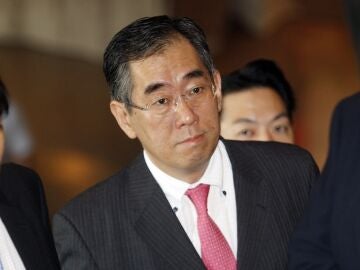
The G7 ministers responsible for digitization and technology have agreed to promote “responsible” use of artificial intelligence (IA) in view of the advancement of these systems and their potential use to undermine democracy and violate people’s privacy.
“As generative AI technologies are becoming more prominent in all countries and sectors, we recognize the need to take stock of the near-term opportunities and challenges of them, and continue to promoting safety and trust in them,” the ministers of the Group of Seven most developed countries (G7) said in a joint statement after a two-day meeting in Japan.
The declaration cites five key principles to regulate the use of AI and other emerging technologies: Rule of law, legal guaranteesdemocracy and respect for human rights and taking advantage of opportunities to promote innovation.
During the meeting held in Takasaki, some 107 kilometers northwest of Tokyo, the ministers also decided to endorse a plan to “create open environments and conducive to the iresponsible innovation through AI“.
The plan urges the different countries to have an active participation in the development of international standards on the regulation of AI and to promote dialogue on issues such as the risk assessment.
The heads of Digitization and Technology of the G7 countries (Germany, Canada, the United States, France, Italy, Japan and the United Kingdom) and the European Union (EU) also committed to promoting the building more secure network infrastructures for emerging or developing countries, and the improvement of submarine cable connectivity.
In turn, they approved plans to strengthen digital infrastructures in the face of authoritarian uses of them, which may involve, for example, the closure or restrictions on Internet access; and also the direct violation of human rights through the use of digital tools, such as the production and distribution of false or manipulated news and other disinformation activities used, for example, during the Russian invasion of Ukraine.
“We decided to cooperate to make visible and address the tactics of digital authoritarianism,” said the statement, which added that the G7 maintains its commitment to the protection of its “institutions and democratic values in the face of foreign threats“.
In addition to Russia, the message is aimed at countries like Chinawhere digital surveillance and other high-tech tools are believed to be used to suppress freedom of expression and violate other fundamental rights and freedoms.
Also present at the meeting were Ukrainian ministers and also from India and Indonesia, which are hosting the meetings of the G20 (a group made up of the countries with the most developed and the most emerging economies) and the Association of Southeast Asian Nations (ASEAN) this year, respectively.
Source: Lasexta
Ricardo is a renowned author and journalist, known for his exceptional writing on top-news stories. He currently works as a writer at the 247 News Agency, where he is known for his ability to deliver breaking news and insightful analysis on the most pressing issues of the day.












